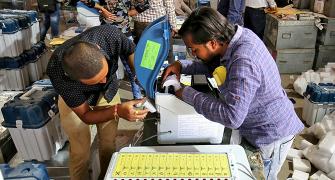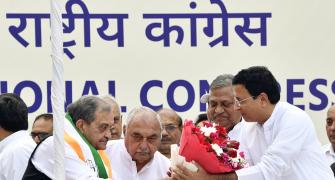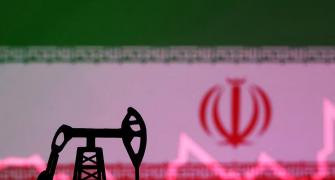Cautioning that no part of the world could claim to be immune from terrorism, India on Wednesday pressed for early adoption of a proposed convention to fight the menace pending at the United Nations, saying it could materialise if the international community showed political will.
External Affairs Minister S M Krishna also underlined the need for reform of the UN to enable it to meet the increasing present day challenges and said without India and Africa, the Security Council was "unrepresentative and undemocratic".
"Today, all of us are living under the shadow of the threats posed by the scourge of International Terrorism. No part of the world can claim to be immune from its tentacles," Krishna said at an 'Africa Day' lecture, which was read out in his absence as there was bereavement in his family.
He said continuing terrorist attacks in various parts of the world are a reminder that the international community needs greater cooperation and stronger collective action to defeat terrorism.
"India had proposed a draft for the Comprehensive Convention on International Terrorism in 1996, whose adoption will demonstrate the strong will of the international community to act unitedly against terrorists," Krishna said.
He said most of the differences over the draft have since been reconciled and "the remaining issues can be resolved if the international community shows sufficient political will."
The minister said India particularly looks forward to working with Africa for early adoption of the Convention.
He said there was also need to evolve a coordinated response for tackling the menace of Piracy in the Indian Ocean in order to safeguard our sea routes and ensure uninterrupted movement of goods and people.
Referring to the current global architecture, Krishna said it is "many decades old and is no longer capable of adequately meeting the increasing challenges before us."
The United Nations, in particular, needs to be reformed and strengthened, the External Affairs Minister said.
"The absence of Africa and countries like India from the permanent membership of the UN Security Council makes the body unrepresentative and undemocratic," he said.
Krishna said India strongly supports Africa's demand to get its due role as permanent members of the Security Council and appreciates the widespread support of African countries for India's permanent membership of the Security Council.
He said both India and the African Union have advocated expansion of the Security Council in both its permanent and non-permanent categories.
"We both emphasise that the new permanent members of the Security Council should have the same rights and responsibilities as the existing permanent members, though the G-4 proposal envisages this to be a step-by-step process," he said.
Given that text-based inter-governmental negotiations on UN reform will start in the UN General Assembly on June one "we now need, more than ever, to work together to ensure stronger presence of the developing world in the UN Security Council."
Talking about age-old relations between India and the African continent, he said an amount of $5.4 billion ($1.1 billion per year) has been earmarked for Africa over the next five years in the form of credits and another $ 500 million as grants.
He said there was "considerable potential for further growth and expansion" in bilateral trade between India and Africa which was on the upswing, having grown from $3 billion in 2000-01 to $39.3 billion in 2008-09.
Krishna said the government is actively encouraging India's private sector to seriously look at the African market and encouraging enhanced business-to-business interactions between the Chambers of Commerce and trade bodies on either side. India has offered a Duty Free Tariff Preference Scheme for Least Developed Countries, 34 of whom are in Africa, to enable them to gain preferential access to the Indian market. 16 of these countries have already started availing benefits under this scheme.
While referring to the Doha round of WTO talks, he said India favours "early, balanced and successful" conclusion of the negotiations, with development at the core of its heart.





